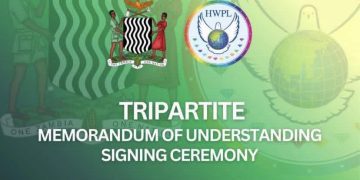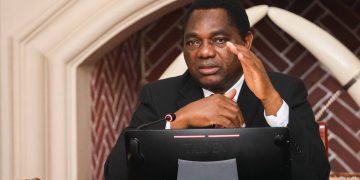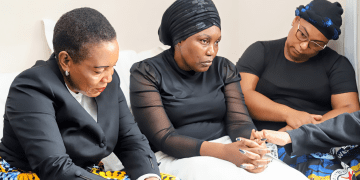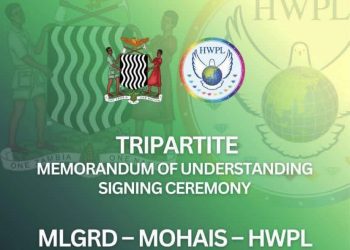Africa Freedom Day is a special occasion celebrated annually on May 25th to commemorate the continent’s liberation from colonialism and its journey towards independence. This day holds great historical significance as it marks the beginning of a new era for Africa, where countries were able to chart their own course and shape their destiny. The story of Africa Freedom Day is intertwined with the continent’s struggle for independence from European powers, a struggle that was marked by immense sacrifice, determination, and resilience. In this article, we will explore the journey of Africa from colonialism to independence, and how this auspicious day came to be celebrated across the continent. We will delve into the historical events that led to the formation of the African Union, the role played by African leaders in the struggle for freedom, and the significance of Africa Freedom Day as a symbol of hope and liberation for the people of Africa. Join us on this journey through history and discover the remarkable story of Africa Freedom Day.
Colonialism in Africa is a history of exploitation, oppression, and subjugation. European powers colonized Africa starting in the 15th century, with the Portuguese establishing trading posts on the West African coast. The scramble for Africa began in the late 19th century, with European powers carving up the continent into colonies. Africa became a source of raw materials, cheap labor, and new markets for European countries, which exploited the continent’s resources to fuel their own industrial growth.
The effects of colonialism on Africa were devastating. European countries imposed their own political, economic, and social systems on the continent, which were designed to benefit them at the expense of Africans. Africans were denied basic human rights, including the right to political participation, education, and healthcare. They were forced to work in mines and plantations under harsh conditions, and their lands were taken away from them.
Africa’s struggle for independence was a response to this exploitation and oppression. Africans began to demand their rights and to fight for their freedom.
Africa’s struggle for independence was marked by immense sacrifice, determination, and resilience. African leaders and activists fought tirelessly against colonialism, using a variety of tactics including protests, strikes, and armed resistance. The struggle for independence was a long and difficult one, but ultimately successful.
One of the key figures in the struggle for independence was Kwame Nkrumah, the first president of Ghana. Nkrumah was a Pan-Africanist who believed that Africa should be united and free from colonialism. He inspired many other African leaders to fight for their own independence.
Other notable figures in the struggle for independence include Nelson Mandela of South Africa, Jomo Kenyatta of Kenya, Kenneth Kaunda of Zambia and Julius Nyerere of Tanzania. These leaders and many others worked tirelessly to bring about independence for their countries.
The struggle for independence culminated in the formation of the Organization of African Unity (OAU) in 1963. The OAU was formed to promote African unity and to coordinate the efforts of African countries in the struggle against colonialism and apartheid.
The OAU played an important role in the fight for freedom in Africa. It provided a platform for African leaders to discuss issues of common concern, and it helped to mobilize international support for the struggle against colonialism. The OAU also worked to promote economic and social development in Africa.
Africa Freedom Day is a symbol of hope and liberation for the people of Africa. It represents the triumph of the human spirit over oppression and exploitation. It reminds us of the sacrifices that were made in the struggle for independence and the importance of freedom, justice, and equality.
Africa Freedom Day is also a time to reflect on the challenges facing Africa today. Despite the gains that have been made since independence, many African countries continue to face economic, political, and social challenges. Poverty, disease, and conflict are still major issues in many parts of the continent.
Africa Freedom Day is celebrated in many different ways across the continent. In some countries, it is a public holiday, and people gather to celebrate with parades, cultural events, and speeches by political leaders.
In other countries, Africa Freedom Day is celebrated more quietly, with people reflecting on the significance of the day and the progress that has been made since independence. Many people use the day to renew their commitment to the ideals of freedom, justice, and equality.
Despite the progress that has been made since independence, many African countries continue to face significant challenges. Poverty, disease, and conflict are still major issues in many parts of the continent.
One of the biggest challenges facing Africa today is the issue of economic development. Many African countries are still struggling to achieve sustainable economic growth, and poverty remains a major problem. In addition, the continent is facing a number of environmental challenges, including climate change and deforestation.
Despite the challenges facing Africa today, there is reason for optimism. The continent is home to some of the fastest-growing economies in the world, and there are many exciting developments taking place in areas such as technology, renewable energy, and agriculture.
There is also a growing sense of optimism among young people in Africa, who are increasingly taking a leadership role in shaping the continent’s future. Many young Africans are using their skills and creativity to tackle some of the biggest challenges facing the continent, and they are driving innovation and growth in a variety of sectors.
The struggle for independence in Africa offers many important lessons for people around the world. It reminds us of the power of determination, resilience, and solidarity in the face of oppression and injustice. It also highlights the importance of leadership, vision, and unity in achieving social and political change.
Furthermore, the struggle for independence in Africa underscores the importance of international solidarity in the fight for freedom and justice. African countries were able to achieve independence in large part because of the support they received from other countries and international organizations. This support was crucial in helping to mobilize resources and to build a global movement for freedom and justice.
Africa Freedom Day is a celebration of Africa’s journey from colonialism to independence. It is a reminder of the sacrifices that were made in the struggle for freedom, justice, and equality, and of the importance of these ideals today. As we celebrate this auspicious day, let us renew our commitment to building a better future for Africa and for all people around the world.






































